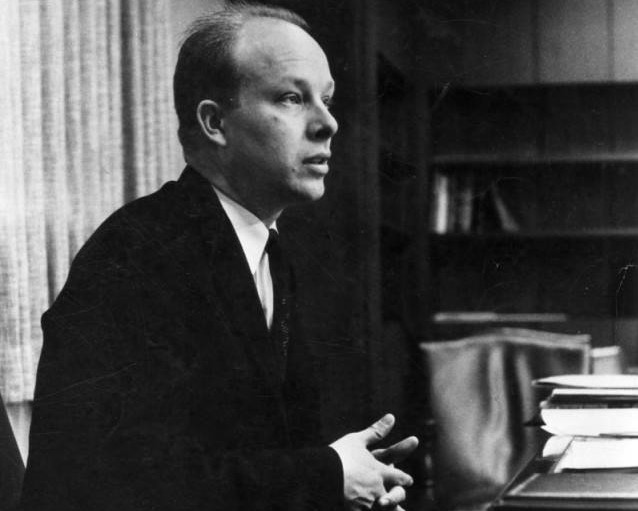‘An entrepreneur tends to bite off a little more than he can chew hoping he’ll learn quickly how to chew it’
Roy Ash used his tough computer-like mind to help build a multibillion conglomerate, Litton Industries, and also became a force inside the White House of President Nixon in the 1970s becoming president in all but name as Nixon became embroiled in the Watergate scandal.
Too poor to pay for college in America, Roy Ash was accepted into the statistics division of the Army Air Forces, home to brilliant young men like future defence secretatry Robert S McNamara. After leaving the army, Harvard Business School accepted Ash without even a high-school diploma, where he graduated first in his class.
He later became finance director of Hughes Aircraft, the aviation company of legendary inventor Howard Hughes, before co-founding his own Litton Industries conglomerate, whose disparate brands included both Adler and Royal typewriters and Stouffer’s frozen foods.
It was President Nixon who called in Ash to reorganise how the executive power of the presidency was organised, and his stewardship of the new Office of Management and Budget led to the creation of agencies such as the Environmental Protection Agency. However, Ash was also on hand during the dark days of the Watergate crisis, as President Nixon fought not to be dragged down by an election slush fund scandal. Ash became a kind of surrogate president, administering the Nixon policies.
He later worked for Nixon’s successor, President Ford. Despite journalists calling him “the human computer”, Ash did have a sense of humour. In addition to saying, “An entrepreneur tends to bite off a little more than he can chew hoping he’ll learn quickly how to chew it”, he also had a quick retort for Gerald Ford when he asked if there was any good economic news he could include in his State of the Union address. “That’ll take about four seconds,” Ash quipped.




